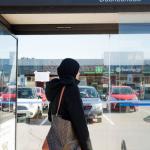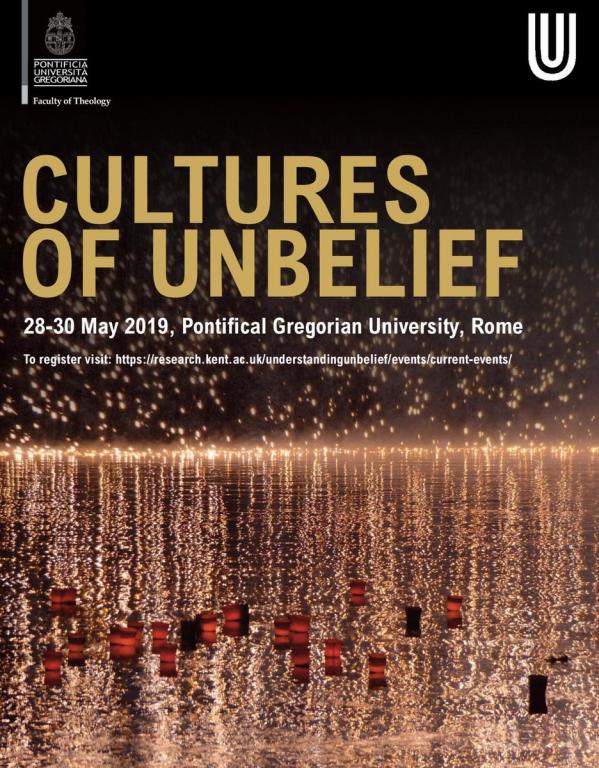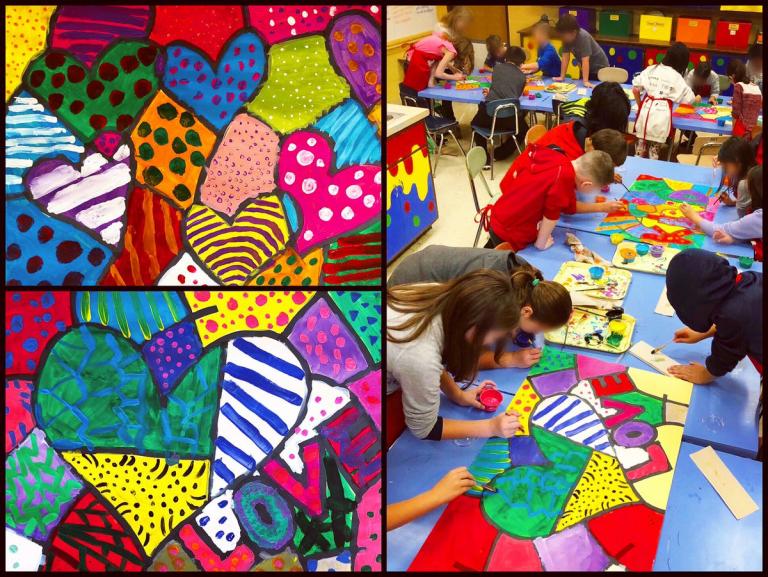
This is a talk I delivered to the Yale Humanist Community of New Haven, Connecticut at one of their monthly gatherings called Humanist Haven on October 15, 2017. I extend my deepest gratitude to the Executive Director, Kathleen Green, and the extraordinary people of YHC who dream of a better world, like us all.
Julian Baggini, founding editor of The Philosopher’s Magazine, and author, co-author of twenty books and quite involved in the study of religious and atheist dialogue, shares that for those of us who are interested in interfaith dialogue and religious/non-religious dialogue, it is a way for us to think of ourselves as part of a no nonsense group called the coalition of the reasonable. It would seem to me that there is a quiet majority who are not as fundamental and rigid in our claims of truth and wisdom, either on the religious side or non-religious side. Additionally, there is the belief that if we bring like-minded people together in this engagement, we can counter the illusion that our beliefs inevitably divide us.
I am certainly drawn to the idea of a coalition of the reasonable, since the alternatives are hardly worth bothering about: a coalition of the unreasonable or a divided band of the reasonable. But what does that coalition look like? Some of us assume that under the surface of belief/non-belief dialectics, lies what we might see as a liberal understanding of religion and beliefs that share a liberal, sympathetic awareness in our shared politics and socio-economics. Liberal religious belief is taken to be characteristically relaxed in matters of doctrine, non-literal in matters of sacred text interpretation, and pluralistic in relation to differences. Although this may be true to some extent, depending where you are at, this coalition of the reasonable must be built on something more than a shared liberal approach to orthodoxy, and to life.
To find meaningful connections between people who view the world through a religious or non-religious prism, we not only need to be honest about our differences and similarities in belief and particularly in values, but essentially, we need to be clear as to what the point is of trying to establish common ground. Whatever our motivations are, I think there are at least three good reasons for at least trying to establish common ground.
The first reason of course is practically political and social, as well as religious. It’s just not good to have families, communities, or nations divided by faith, or lack of it. It’s worth engaging with each other about our shared life on this planet. The question I need to ask myself is to what lengths am I willing to go to unearth solidarity, rather than sow division through apologetics. We are painfully aware of the extent of division in this country across cultural, economic, and religious/non-religious lines. Sociologists call one phenomena that is going on “hyper-differentiation.” In other words, the more conscious we become of our differences, the more divided we become.
Within this complexity is a fundamental issue: we know so little about each other in truth. Many religious believers fall under the false notion they understand the true nature of atheists and have assumed that a battle between faith and secular culture is in order. This false assumption is at the heart of our fragmentation. In this “battle”, most of the talk is among themselves, a virtual “preaching to the choir.” At the same time, some new atheists and ardent religious fundamentalists fuel circles of hostility and ignorance. Unfortunately, short slogans like “religion is evil,” and “atheists are going to hell” still frame the discussion. It is time for a new frame.
Splitting the world into two, good and evil, and knowing who belongs to which side is sometimes called dual, or binary thinking. It can look like this: sacred/secular, right/left, gay/straight, white/black, citizen/immigrant, Christian/anything else but, defines not only how we can understand our communities, but it is how we self- define ourselves. Which side am I on? Am I my sexual orientation? My faith or non-religious views? Does my religion or nonreligious view, my skin color, or politics define me so completely that there is nothing left or worth discovering? Our lack of dialogue has us not knowing more deeply our complexity and rich identities.
It is a mistake to think that the dividing line between us is those who bear religious beliefs, and those who do not. The dividing line in humanity is not the religious/non-religious, but those who believe that uniting humanity in important areas is worth the effort, and those who don’t. The dividing line is between those who honor our diversity and pluralism as our greatest attribute, and those who are afraid of it. The dividing line is between those who see more possibilities when we are in sincere, honest dialogue and search for common ground, and those who do not.
This is brought into sharp focus today in the midst of a populist movement raging throughout country that probably began at the time of the great recession of 2008, that casts deep suspicions on our pluralism and diversity through a politics of fear, isolationism, and xenophobia. It has re-emphasized conflicts of faith and secularism, anti-immigration, Islamophobia, overt racism and more through a cocktail mix of conservative Christian theology and political ideology. The binary, dualistic world of certain Christian fundamentalists in alliance with ultraconservative politics, and a passel of hate groups has gained a much more public voice of power recently, and this is troubling. This is a crucial reason why we need to model new forms of civil conversation and dialogue in the face of the ‘coalition of the unreasonable.’
The second reason is highly personal. As a religious person, my Catholic faith has brought me into the extraordinary world of others outside of my cultural identity and religious faith in three continents of the world. I have been thrust into experiences, sometimes unforeseen, to create bridges of understanding and hope, based on our Christian desire for reconciliation and peace. I have seen this lesson played out many times where people so wholly different from one another can build unexpected bridges across the expanse of the divides. Many times, the effort in dialogue can be extremely difficult, as I witnessed, for example, between Muslims and the Philippine government. The conflict between the Philippine government and the autonomous Muslim territory in the south had escalated. Yet it was bishops and imams that worked to coalesce an opportunity for peace through a national coalition of Christians and Muslims.
Moreover, my Christian tradition, the Roman Catholic Church, may be one of the few Christian traditions with the official pastoral desire to find ways of dialogue with non-religious in systemic ways since 1965. In that year, Pope Paul VI established the Secretariat for Non-believers as an official platform to find the ways of dialogue with secular culture. In 1968, the first official guidelines of the Catholic Church for dialogue with non-religious persons and organizations were published. Subsequent Popes continued to bolster this dialogue and place it in the framework of intercultural dialogue on a global scale. Pope Benedict XVI created a program called, Courtyard of the Gentiles, which continues to bring together religious believers and non-religious in conferences throughout Europe, Brazil, and in the US since 2005. Pope Francis continues this commitment as he shared:
“As believers, we also feel close to those who do not consider themselves part of any religious tradition, yet sincerely seek the truth, goodness and beauty which we believe have their highest expression and source in God. We consider them as precious allies in the commitment to defending human dignity, in building peaceful coexistence between peoples and in protecting creation.”
The third reason starts with the recognition that we are all flawed human beings with prejudices formed from our social backgrounds, and limitations created by our education, intellectual weaknesses, and cognitive blind spots. So, a genuine common ground also needs some common central ethical and intellectual values, and that show a piece of our common ethic. Julian Baggini (1) suggests our common ground rests on a foundation of shared values, the virtues of sincerity, charity, and modesty.
By sincerity he means not only that people genuinely believe what they say. Rather, they make a genuine effort to discover the truth and can question honestly their own beliefs and worldviews, whether secular or religious. They are, as it were, fellow seekers. By charity, he means the genuine effort to try to understand the views of others different than our own, in a sympathetic way, being critical of their strongest versions, not their weakest ones or straw-man caricatures By modesty, he means that we are all limited in our understandings, and that no matter how sure we are, we could be mistaken. In my work of dialogue with Muslims, we use the same values and more.
In our past five years, seeking common ground through shared values (not necessarily beliefs) with the non-religious has brought to the surface places of meaning and discernment where we all live in together. They are around our common desire for a hope-filled, satisfying, and meaningful existence; around our need for community where our families can flourish; and around a common sense of what is right and just in the places where we live, and elsewhere in the vast inequalities we all witness. Ethical living is done while engaging and collaborating with each other.
In some form of a ‘coalition of the reasonable’, we know that our diversity is not a problem to fix, but a mysterious part of our collective humanity whose meaning must be unearthed in conversation with each other, a careful paying attention to what matters. We are not religious and secular ideas or abstractions competing with one another, but human beings who hold beliefs and convictions in very imperfect ways. They are the signposts of our life journeys. It is in the stories of our lives that has brought us to where we sit today that reflect our truest, most enduring beliefs and worldviews.
We all have stories, a history mixed with often unexpected learning, burdens that are hard to articulate, wounds that yearn to be healed. A friend of mine tags each of her emails with this thought: “Engrave this upon your heart: there isn’t anyone you couldn’t love once you heard their story.” The snippets of life stories I have heard from my secular friends have opened my eyes to the misconceptions and stereotypes I and my faith colleagues hold to. Even more, notwithstanding the differences, how we all impact the common good in surprising, unexpected ways.
(1) Julian Baggini, “Myth of Mythos,” in Religion and Atheism: Beyond the Divide, ed. Anthony Carroll and Richard Norman (New York City: Routledge, 2017). Mr. Baggini’s thought is laced in various parts of this talk, along with my own take on things.
_____________________________________
 FR. CARL CHUDY is a Catholic priest and member of an international Catholic religious order very involved in interfaith and intercultural dialogue worldwide. He holds a Masters in Divinity from Catholic Theological Union in Chicago with a cross-cultural specialization. Carl is currently involved in further studies in interfaith and inter-secular dialogue at Hartford Seminary. He works with some national interfaith and secular associations, including the American Humanist Association.
FR. CARL CHUDY is a Catholic priest and member of an international Catholic religious order very involved in interfaith and intercultural dialogue worldwide. He holds a Masters in Divinity from Catholic Theological Union in Chicago with a cross-cultural specialization. Carl is currently involved in further studies in interfaith and inter-secular dialogue at Hartford Seminary. He works with some national interfaith and secular associations, including the American Humanist Association.















